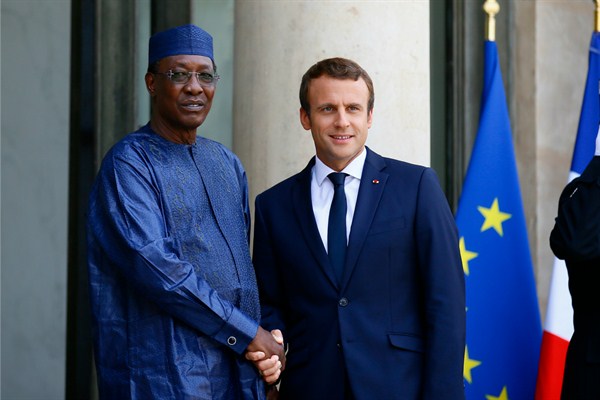Even longtime observers of Sudan didn’t predict the collapse of President Omar al-Bashir’s government when protests against his economic policies began late last year. Widespread discontent and a crumbling economy, though, eventually proved to be too much for his entrenched but beleaguered regime. Since Bashir was forced out of power in April, the Transitional Military Council running the country has presided over a massacre of civilian protesters in Khartoum. Despite some recent progress in negotiations between the generals and protest leaders who are eager to begin a democratic transition, the situation remains fraught and exposed to the meddling of outside powers.
The swift collapse of Bashir’s regime has reverberated throughout North Africa, perhaps most of all in neighboring Chad, where President Idriss Deby faces similar vulnerabilities, even if he enjoys closer security ties to the United States and Europe than Bashir did. The fall of Bashir is another warning about the fragility of autocratic regimes in the region, eight years after the Arab uprisings in the Middle East. The U.S. and its allies have nevertheless relied on many of these regimes, like Deby’s in Chad, as counterterrorism partners. European countries led by France and Germany, in particular, have been drawn deeper into North and West Africa to try and boost security and stability and slow the outflow of refugees across the Mediterranean.
They help train local soldiers, fund multilateral security initiatives such as the G5 Joint Sahel Force, and work on economic development projects such as the Lake Chad Basin Commission. Despite these efforts, a multitude of extremist groups are proving resilient and have taken advantage of local political and ethnic cleavages to strengthen their positions. As this battle rages, Chad’s large military—and Deby’s willingness to use it—have made the country an indispensable Western ally.

